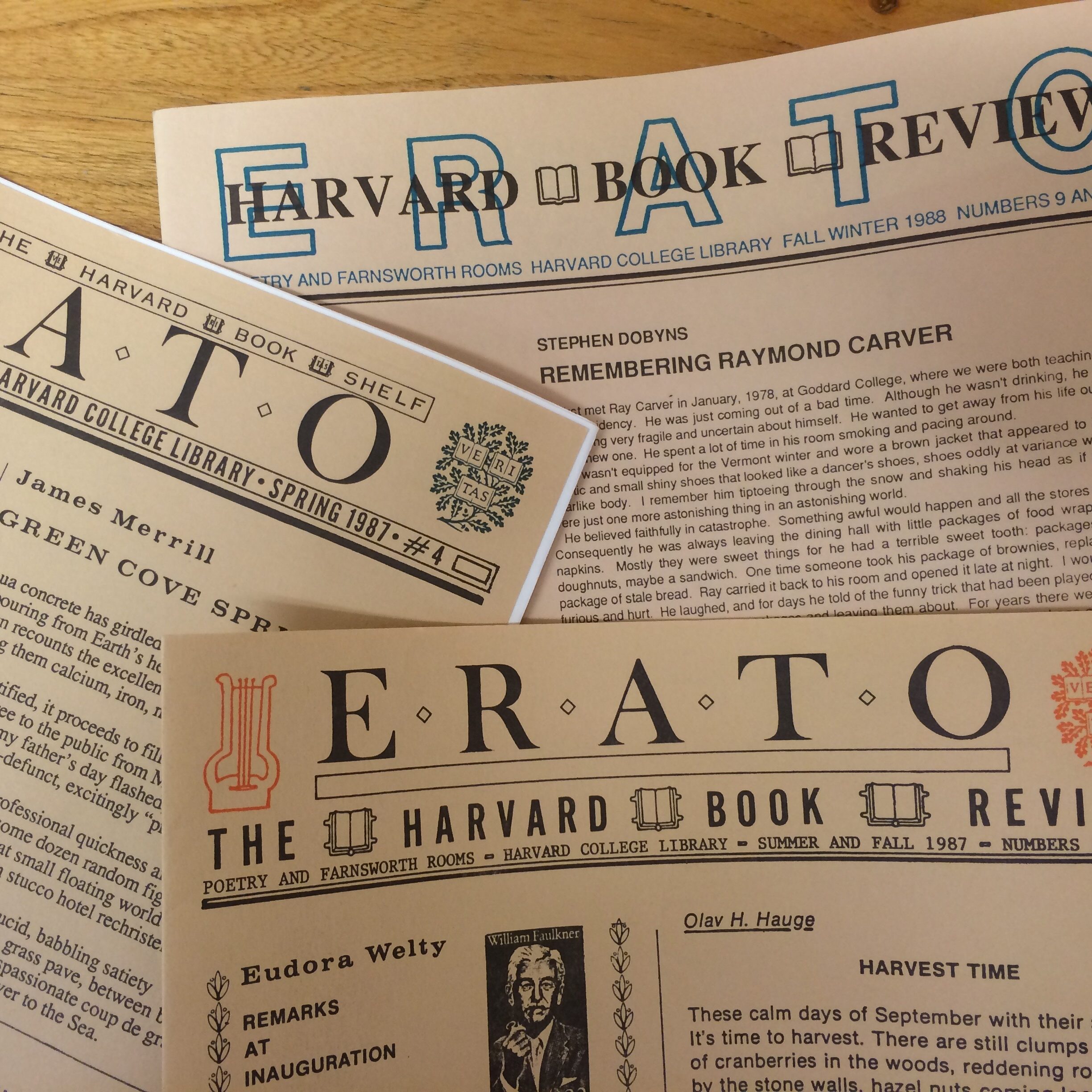Helen Vendler on Book Reviewing
by Helen Vendler
On December 6, 1990, Harvard professor and eminent literary critic Helen Vendler gave a talk on book reviewing. Somehow the text of this talk found its way into a copy of Erato/Harvard Book Review, where it was discovered twenty-six years later by a Harvard Review staff member who was packing up boxes to send to the University Archives. We are delighted to be able to share these notes and hope you enjoy Professor Vendler’s insights into the duties of a book reviewer.
Writing a book review is a difficult task: it requires us to describe an object that is invisible, to recreate it for someone who has never seen it.
Who is the reader of a review? It is someone coming for the first time to a work—often a work that no one knows very much about. The reviewer needs to know something about the readers: are they experts in the field, interested amateurs, the general public that doesn’t know much about the field or the particular work? Am I writing for my optometrist, my dentist, my taxi driver? What can I assume about them? What do they need to know in order to read my review? One can think about two classes of readers: those who read the review because they think they will want to read the book, and those who read the review because they know they won’t want to read it. Reviewers must be mindful of both groups as they write.
Reviewers are responsible for selecting the important elements of a book and explaining their importance. Though they must be as inclusive as possible, reviewers must learn not to report everything; they must compress. Deftness will help—the insertion of a qualifying phrase, an aside, will set the scene or reveal a trait of character. Try to tuck things into the body of the review; use lists if they will help. Try reducing chapters, even whole books, to a sentence. Then take that reduced statement and decide how to expand it. Remember that publishers set a page limit, and use that limit to help yourself select the central issue, the significant details, the quotations. The first draft is almost always too long; learn to cut without destroying the work.
Where to begin the review: in the Garden of Eden, the English Civil War, or the first lines of Paradise Lost? “Where do you put in your wedge?” It is useful to think of the development curve of the book. How does it move from A to B, from preface to concluding chapter? Following this curve may help plan the shape of the review.
Reviewers can plot the curve in part by making extracts. Isolate passages that you might want to quote because they illustrate the best and worst characteristics of the book. Compile an anthology, a mini-book. Then reread the quotations. Why did they attract you? What do they illustrate? Which can you use to start the review or to end it? Which will you use to illuminate what points?
What are the desiderata: what would we want or expect to learn from this book? What does the book claim to do? What do we find? Were we disappointed? We can trace for ourselves the curve of expectation and match it to the jagged line of reality, sometimes above, sometimes below that curve. Does the book exceed our expectations or disappoint? Does it make us irritable? How shall we measure or explain the difference between promise and performance?
A review has three main parts: a description of the book, an evaluation, and a defense of the evaluation. Fitting those parts together will vary from review to review.
The first task is to describe, to produce a taxonomy of the book: what kind of book is it? Reviewers should describe the whole and its parts economically. Give readers the big picture, then focus on one piece. Use comparisons and contrasts to give readers a sense of the whole work without describing it in excessive detail. “Unlike Jane Austen, this author …. ”
In most books there’s a slough of despond waiting to trap reviewers: a chapter they don’t want to discuss. (Often this is because the author didn’t much like writing that chapter.) Be fair to the author; recognize the “flabby connective tissue,” but don’t let that weakness overwhelm the book or the review.
Turning to the evaluation of the book, reviewers ask about its context. How does it fit into its era, its nation, the ideological patterns of which it is a witness? Situate the book. How is the topic under discussion seen nowadays; does this book fit the paradigm or does it propose a new model? Ask about its ancestors and about what books it might generate. Books make other books happen. What would we like to see next? What evidence, devices does it use; does it use them well?
These questions reveal the reviewer’s criteria as well as the nature of the book. What framework does the reviewer use to measure the book? What are the standards, the measures by which the curve of expectation was drawn?
There’s one ethical rule for reviewers: read every word, including every footnote, the index, the bibliography, the captions of the pictures. And another rule: don’t review what you don’t feel competent to review.
Writing a book review is like giving oneself a mini-seminar. One has to know an enormous amount about the matter of the book to understand it and be properly critical. Preparing to write is a process of self-education; it involves experience and self-awareness. Critics who are too young haven’t read enough; those who are too old may have lost touch with the center of a generation.
Published on May 3, 2024
First published online on May 24, 2016

